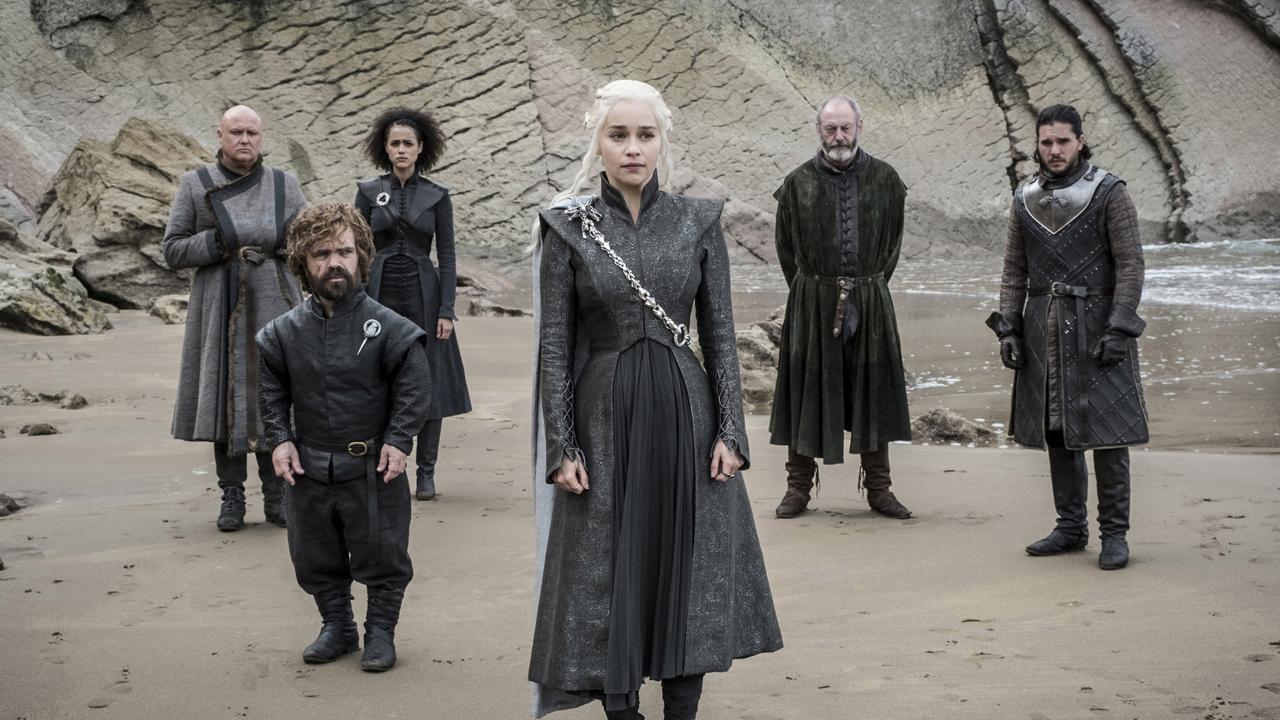What 'Game of Thrones' finale means for HBO's future
HBO’s smash hit “Game of Thrones” concluded its lucrative, decade-long run on Sunday night, even as the cable network is ramping up efforts to build a streaming service meant to challenge Netflix’s dominance.
The series brought George R.R. Martin’s epic fantasy novels to a mainstream television audience and gave HBO arguably its biggest franchise to date, drawing more than 30 million per episode across all platforms during its seventh season and shattering viewership records in its final six episodes this year. HBO has added roughly 50 million paid subscribers worldwide since “Game of Thrones” debut in 2011, boosting overall revenue to $6.6 billion in 2018 even as other traditional cable networks struggled with the “cord-cutting” trend.
While the final season of "Game of Thrones" drew a mixed reaction from fans, the franchise has a key role to play in HBO's future. Several potential spinoff series remain in production, despite a leadership shake-up that saw longtime HBO chief Richard Plepler exit the network earlier this year. With new parent company AT&T prioritizing efforts to boost original content at HBO to rival Netflix and Amazon, “Game of Thrones” is set to remain a tentpole brand for the cable network.
“Game of Thrones has the potential for a steady stream of prequels and sequels. In that sense, Game of Thrones is a natural franchise along the lines of Star Wars, Harry Potter and the Marvel and DC Comics universes,” eMarketer principal analyst Paul Verna told FOX Business. “This bodes well for WarnerMedia’s upcoming streaming service, which will be able to leverage eight full seasons of Game of Thrones plus any new offshoots. That should be a winning combination in a market where competition depends on both current programming and a deep content library.”
“Game of Thrones” is already among the most valuable properties franchises in media, with some analysts pegging the series’ value to HBO at more than $1 billion, according to the Hollywood Reporter. Led by stars Emilia Clarke and Kit Harington, the series is a pop culture sensation and regularly ranks among the most-pirated TV shows in the world. It has also achieved critical acclaim, winning 38 Primetime Emmy Awards and 132 nominations since its debut.
HBO invested heavily in its final season, spending more than $10 million on production of each of the final six episodes. Under WarnerMedia, HBO will have to rely on strategic investment, given the scope of its rivals’ resources. Netflix is expected to spend $15 billion on original content in 2019 alone, while Amazon plunked down $250 million for the rights to produce a “Lord of the Rings”-based series alone, in addition to other investments.
"We want to be careful to not overdo it," HBO programming president Casey Bloys told the Hollywood Reporter earlier this year. "Game of Thrones has been an incredible show for us, but what we're doing is a much more diversified slate so that we're not in a position that we have to [keep] the franchise up and running or the lights are going out at HBO."
It’s unclear how many “Game of Thrones” spinoffs will ultimately receive a green light. One project, described as a prequel to the main series, will star Oscar-winning actress Naomi Watts and is set to begin production on a pilot in the near future.
CLICK HERE TO GET THE FOX BUSINESS APP
WarnerMedia’s untitled streaming service, which will have content from HBO, CNN and several other AT&T-owned properties, is set to debut later in 2019 with a three-tiered pricing structure.




















